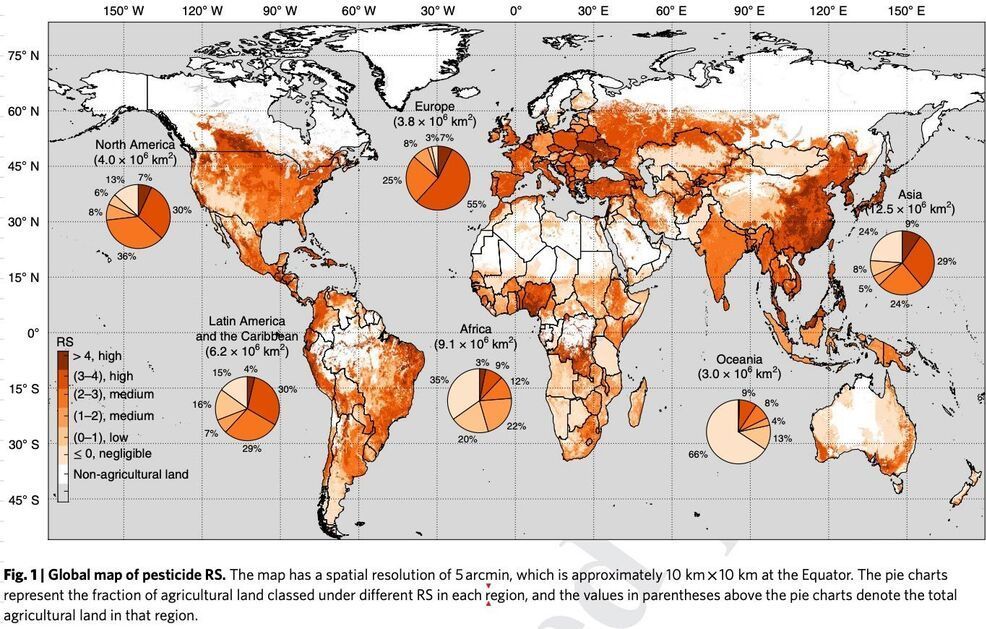“Our study has revealed 64 percent of the world’s arable land is at risk of pesticide pollution. This is important because the wider scientific literature has found that pesticide pollution can have adverse impacts on human health and the environment,” said Dr. Tang.
There is concern that overuse of pesticides will tip the balance, destabilize ecosystems and degrade the quality of water sources that humans and animals rely on to survive.
The future outlook
Global pesticide use is expected to increase as the global population heads towards an expected 8.5 billion by 2030.
